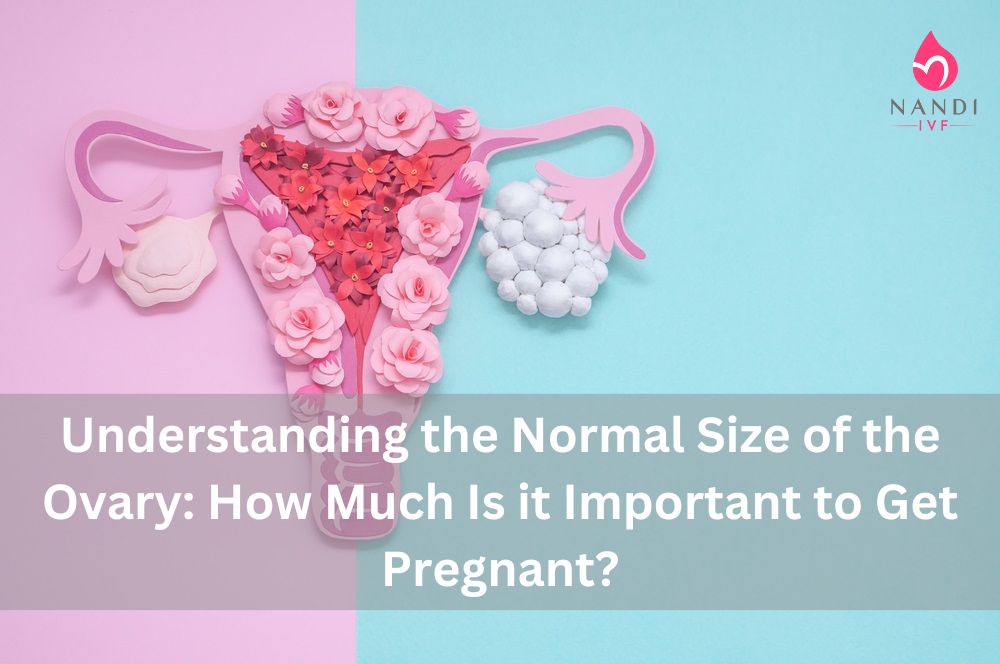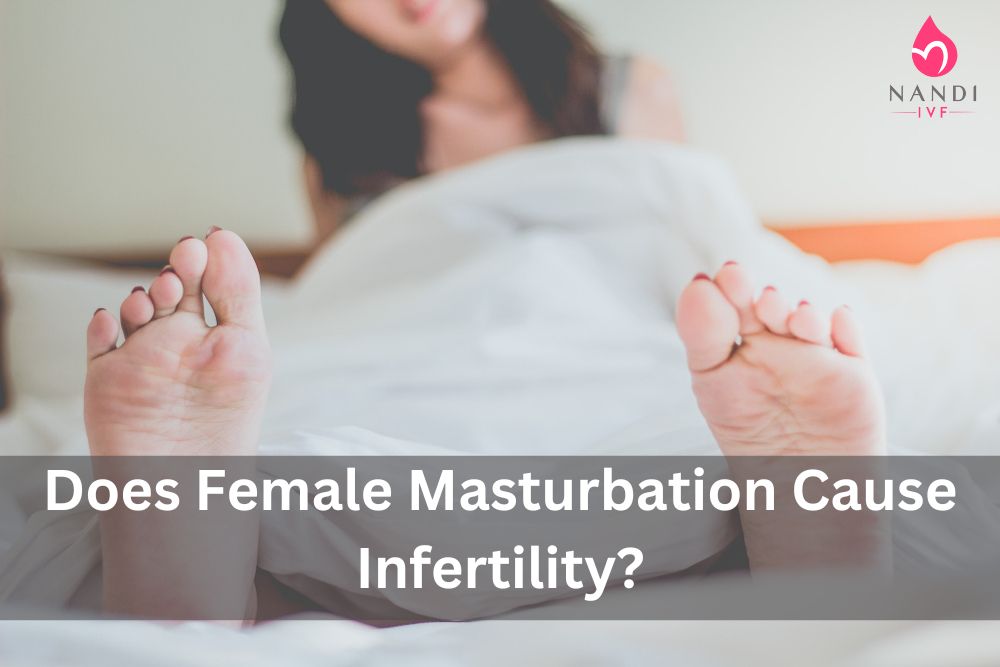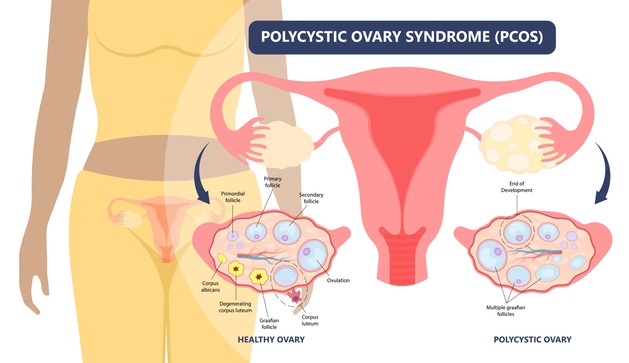Normal Size of the Ovary: The female reproductive system has two egg-shaped organs, popularly known as ovaries. They produce and release ovum, commonly referred to as eggs, into the fallopian tube. These eggs get fertilised by sperm, becoming embryos. These embryos get implanted into the endometrium lining, leading to pregnancy.
Ovaries produce hormones required to maintain pregnancy. The ovary releases an egg at every menstrual cycle until menopause. Studies reveal that the volume of ovaries decreases every decade of life from the age of 30 to 70. Thus, the health of the ovaries is a significant element in a woman’s life. As a consequence, the normal size of the ovary is vital for a woman.
Decoding Normal Size of the Ovary
The size of the ovary affects the chances of getting pregnant. A young woman with a small ovary is more likely to face difficulties while achieving a normal pregnancy. The average normal size of the ovary is 40mm x 30mm x 20mm (length, width, depth), equivalent to a volume of 4 and 6 ml.
The elongated or large ovary suggests polycystic ovary syndrome (PCOS). This condition can make a woman deprived of ovulation or anovulation. Conversely, too small an ovary also suggests a decrease in the number of eggs produced, leading to imminent menopause.
Read Also: Positive Signs After Embryo Transfer
Factors Influencing the Size of the Ovary
In a woman’s life, the size of an ovary might vary several times, depending on various factors. The factors affecting the size of the ovary are;
1. Age: The size of ovaries varies with age. The normal size of the ovary sustains during the reproductive years. However, the ovaries shrink towards menopause. The ovaries decrease in size when the follicles inside the ovaries deplete.
2. Hormonal Fluctuations: Hormonal fluctuations might affect the size of the ovaries. The fluctuations in hormones like FSH or LH and the excess production of androgens in PCOS lead to variations in ovary size. Women diagnosed with PCOS have bulky, pearly white-coloured ovaries. In contrast, women with premature ovarian failure or reduced ovarian reserve have too small ovaries. Thereby affecting the normal size of the ovary.
The table below presents the general guidelines on the size of ovaries and the associated conditions. Please note that this information is general, and the actual size can vary based on genes and overall health.
|
Size of Ovary (in cm³) |
Usual Age Group |
Associated Conditions |
|
< 4 |
After menopause | Premature Ovarian Insufficiency1, Turner Syndrome |
|
4 |
All |
Healthy |
| > 4 | Before menopause |
Polycystic Ovary Syndrome (PCOS), Ovarian Cysts, Ovarian Hyperstimulation Syndrome |
3. Pregnancy: Pregnancy may affect the size of the ovaries because early pregnancy proliferates the size of the ovaries. It occurs due to the secretion of estrogen and progesterone (pregnancy hormones). Moreover, the ovaries might remain bulky throughout pregnancy.
4. Infertility Treatment: Infertility treatment affects the ovaries because they receive hormone injections. These injections cause the growth of numerous follicles. These follicles, thereby, make the ovaries vascular and bulky.
5. Ovarian Cyst Removal: One can remove the cysts through medical procedures due to hormonal imbalance and non-ovulation. These cysts cause swelling and discomfort that can be treated with medications or surgery.
6. Laparoscopic Ovarian Drilling: Women who face non-ovulation due to PCOS can seek medical treatment like Laparoscopic ovarian drilling. This process can improve the production of ovaries. However, it can also affect the size of the ovary.
Read Also: Empowering Couples For Parenthood: Navigating Pregnancy With PCOS And PCOD
Potential Impact of Ovarian Size on Pregnancy
Now that you know that the normal size of the ovary is vital to pregnancy, let’s learn more about the potential impact of ovarian size on pregnancy.
- Smaller ovaries mean a smaller ovarian reserve. It means that if the ovary size is small, the number of eggs it produces may also be less. It is true because ultrasounds & ovarian reserve tests show whether the female has sufficient eggs required for IVF & other infertility treatments.
- A big ovary does not necessarily equate with a large reserve of eggs. Large abnormal ovaries could result from hormonal problems, cysts, or tumours that impact ovulation (egg releasing from ovaries). Seeking medical assistance will discern the appropriate reason behind large ovaries. Moreover, medical experts can treat the root problem accordingly.
- The physiological shape of the ovary may change with every ovarian cycle. It generally occurs due to the dominant follicle growth. By mid-menstrual-cycle, this follicle reaches approximately 22 – 24 mm and breaks, leading to ovulation.
Thus, having a healthy and normal size of the ovary certainly improves pregnancy rates.
ReadAlso: Test Tube Baby Process, Treatment, and Cost
How to Enhance the Health of the Ovaries
There are possible treatments or steps to retain the normal size of the ovary. Let’s discuss the multiple measures that can enhance the health of ovaries to a greater extent.
- Maintain optimum weight: Being underweight or overweight can affect overall health, including ovaries and reproductive health. Therefore, one must maintain a body mass index between 18.5 and 25 to enable a healthy body supporting reproductive health.
- Be active: Avoid living a sedentary lifestyle. It is hazardous to health. Adopt simple exercises like walking, yoga, swimming, or dancing to include some kind of workout in your daily life.
- Refrain from smoking and consuming alcohol: Consuming tobacco or alcohol harms health and fertility. Thus, try avoiding it while conceiving.
- Adopt a healthy and balanced diet: Consume nutrient-enriched food full of macronutrients like carbohydrates, proteins, and micronutrients like calcium, zinc, and vitamin B-6. This certainly improves reproductive health.
- Relax and stay stress-free: It is necessary to balance hormones by avoiding stress, practising meditation, doing a hobby, or doing anything else that makes one feel good.
These steps might prevent ovarian disorder. However, it might happen that despite having a healthy lifestyle, ovary disorder occurs. In that case, one must consult experienced fertility doctors. They look into the problem precisely by assessing reproductive health and customising a proper plan for infertility treatment.
Read Also: Is IUI Procedure Painful? : Dispelling Myths And Exposing The Truth
How Seeking Medical Assistance Can Help Get Rid of Ovary Concerns
Although the size of the ovary gives indications about fertility, the overall health and functional state of the ovaries are important. Every pregnancy journey is as different as all women are. Therefore, a careful examination is vital to understand the peculiarities of the ovary and uterus. An infertility doctor would do multiple treatments and blood tests to diagnose your situation and determine what treatment can improve your chance of getting a normal size of the ovary and experiencing pregnancy.
The doctors and team at Nandi IVF are supportive and empathetic. They value the interests of patients and treat them by addressing their issues as precisely as they can. The wide range of fertility treatments, including IVF and state-of-the-art facilities with the latest technology, makes Nandi IVF the best fertility centre in Delhi.
Nandi IVF has completed 100 IVFs in 6 months with 80% success. Having helped people conceive, their personalised approach has improved success rates. To know more about it, contact us and book your slot today!
Read Also: Signs Ovulation is Over: You Need to Know If You Ovulated or Not
Read Also: Jackfruit During Pregnancy: Benefits, Risks, and Side Effects
Read Also: 7 Steps to Getting Pregnant with Blocked Fallopian Tubes
Read Also: Understanding the Signs of Bad Egg Quality – Taking the Right Steps
Read Also: Normal Pus Cells in Urine During Pregnancy: Comprehensive Guide
Read Also: After Embryo Transfer Day by Day Symptoms





